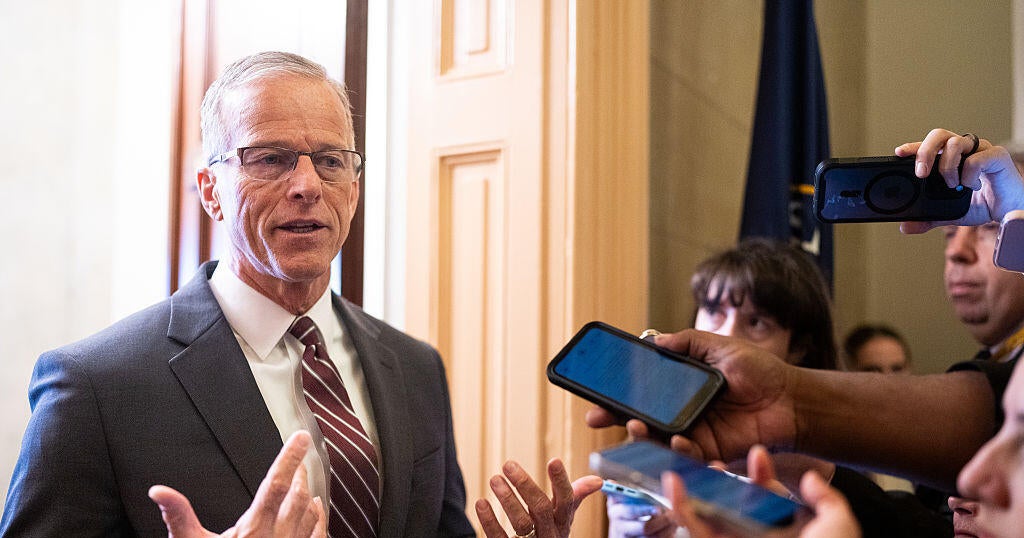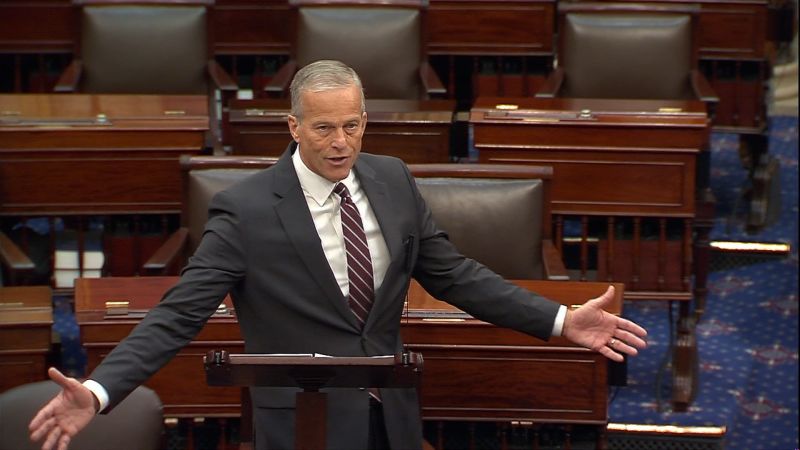The ongoing government shutdown has led to mounting frustrations among lawmakers on Capitol Hill, with tensions running high as key issues like food aid and health care remain unresolved. The deadlock has caused ripple effects across various sectors, impacting millions of Americans who rely on government assistance programs for their basic needs.
Democratic Rep. Laura Gillen of New York has been vocal about the urgent need to tap into a contingency fund to ensure the continuous flow of food aid through programs like the Supplemental Nutrition Assistance Program cSNAPc. Gillen expressed disappointment that hunger is being used as a political bargaining chip, emphasizing the detrimental impact on vulnerable citizens. On the other side, Republican Rep. Kevin Kiley highlighted the growing exasperation among his constituents due to the prolonged shutdown, which has disrupted essential services and left many without vital support.
The House of Representatives has been at a standstill, with House Speaker Mike Johnson asserting that the House has fulfilled its duty by passing a stopgap bill to reopen the government, shifting the onus to the Senate. Meanwhile, Senators have engaged in bipartisan talks, aiming to find a resolution to end the impasse and restore government operations. There have been cautious signs of optimism from lawmakers like Sen. Lisa Murkowski and Sen. Gary Peters, who noted a surge in bipartisan discussions amid escalating concerns over health care premiums and other critical issues.
Senate Majority Leader John Thune's heated exchange with Democratic Sen. Ben Ray Luján underscored the deepening divide between parties, with Thune accusing Democrats of prolonging the shutdown for political gain. Thune criticized the opposition for repeatedly voting against measures to fund crucial programs like SNAP and the Women, Infants, and Children program cWICc. The clash exemplified the intense pressure and frustration prevailing on the Senate floor as efforts to break the deadlock continue.
The economic repercussions of the government shutdown have been significant, with the Congressional Budget Office warning of a slowdown in GDP growth and delayed federal spending amounting to tens of billions of dollars. The funding lapse has resulted in financial hardships for hundreds of thousands of furloughed federal employees, disrupted contracts, and potential lapses in benefits like SNAP payments. The impact is expected to persist even after the shutdown ends, with a portion of the lost output unlikely to be fully recovered.
As lawmakers navigate the complexities of the shutdown, concerns over health care access have taken center stage, with Senate Democrats advocating for the extension of health insurance tax credits in exchange for reopening the government. Republicans have insisted on resolving the shutdown before addressing health care issues, creating a deadlock that has heightened tensions in the legislative process.
While efforts to pass individual bills to address specific issues like food aid have emerged, the fundamental challenge remains the broader impasse on reopening the government. Senate leaders continue to grapple with securing the necessary support to pass crucial legislation, as the shutdown's toll on the economy and public services becomes increasingly evident.
The stalemate shows no signs of immediate resolution, highlighting the complex dynamics at play and the deep-rooted disagreements between political parties. As the shutdown drags on, the urgency to find common ground and reach a compromise becomes more pressing to mitigate the adverse effects on the country and its citizens.


